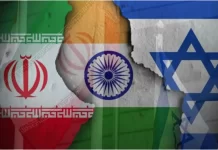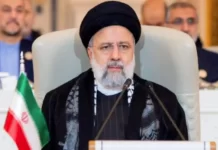Unraveling the Trudeau-Modi Rift: The Case of Hardeep Singh Nijjar
US-based Sikh Secessionist Gurpatwant Singh Pannun’s Controversial Remarks Trigger Concerns for Canadian Hindus
In the world of international politics, accusations and finger-pointing are not uncommon. However, when a prominent leader like Canadian Prime Minister Justin Trudeau accuses another nation of wrongdoing without concrete evidence, it raises eyebrows and questions about the true motives behind such claims. One such incident that has garnered attention recently is Trudeau’s indictment of the Modi government for a crime it allegedly did not commit, related to the killing of Khalistan Tiger Force (KTF) terrorist Hardeep Singh Nijjar. Let’s delve into the complexities of this situation and the broader implications it carries.
The Background Story
A Diplomatic Encounter
Back when Amit Shah was the President of the BJP, he had a diplomatic encounter with the US Ambassador to India. The conversation took a turn when human rights issues in India were brought up. Shah’s response, highlighting America’s own history of violence against indigenous people, abruptly ended the discussion. This incident serves as a reminder of the complexities of discussing human rights issues on the international stage.
On the India-Canada row, US Secretary of State Antony Blinken says “We are deeply concerned about the allegations that Canadian PM Trudeau has raised. We have been consulting very closely with our Canadian colleagues, and coordinating with them on this issue. From our perspective, it is critical that the Canadian investigation proceed. It would be important that India work with the Canadians on this investigation. We want to see accountability and it’s important that the investigation run its course and lead to that result…We have been engaged directly with the Indian govt as well. The most productive thing that can happen now is to see this investigation move forward, be completed. We would hope that our Indian friends would cooperate with that investigation as well. We are extremely vigilant about any instances of alleged transnational repression, something we take very seriously and it’s important for the international system that any country that might consider engaging in such acts not do so. It’s something that we’re also focused on in a much broader way.”
The Nijjar Case Unfolds
Fast forward to June 18, when Hardeep Singh Nijjar, a known KTF member, was killed in Surrey, British Columbia. The Canadian Prime Minister, Trudeau, swiftly pointed fingers at India for its involvement in the killing. With the assistance of Jagmeet Singh, a prominent Khalistan proponent, Trudeau made these allegations without concrete evidence.
Understanding Hardeep Singh Nijjar
Hardeep Singh Nijjar, a plumber by profession, rose through the ranks to become the president of Guru Nanak Sikh Gurudwara. This Gurudwara openly displayed images of Khalistan terrorists, including Jarnail Singh Bhindranwale. Nijjar’s journey took a sinister turn when he became associated with the Babbar Khalsa International and later joined the KTF in 2013. His activities included visiting Pakistan to meet with Tara and ISI officials to strengthen the KTF and organize terror activities in Indian Punjab.
The Trail of Terror
Nijjar’s involvement in contract killings and arms training is deeply troubling. He orchestrated a plan to kill Baba Piara Singh Bhaniarwala and Shiv Sena leader Sanjeev Ghanouli. Nijjar provided funds for contract killings, enabling the purchase of locally made weapons in 2015. In 2016, he organized an arms training camp in Canada, training youth in the use of firearms. His actions led to arrests and FIRs filed under various sections, highlighting the extent of his criminal activities.
A Network of Terror
Nijjar, along with Arshdeep Singh Dala, formed a squad responsible for targeted killings, including those of Manohar Lal, a Hindu priest, and an attempted abduction and killing of Shakti Singh. Several members of this module were arrested, shedding light on the extensive network of terror orchestrated by Nijjar in India.
Trudeau’s Accusations and the Role of the US
Instead of providing concrete evidence of India’s involvement in Nijjar’s killing, Trudeau and his Foreign Minister chose to indict the Modi government. The United States joined in by collecting intelligence to support Canada’s claims. This raises questions about Western hypocrisy in dealing with terrorism.
Khalistan as a Political Tool
The rise of Khalistan as a political issue in Canada and the US is a cause for concern. While freedom of speech and dissent are valued, it’s essential to distinguish between genuine expressions of these rights and the weaponization of Khalistan for political gains. The West’s use of Khalistan as leverage against India has a long history.
Unanswered Questions
Despite India’s submission of dossiers on Khalistan proponents to both Canada and the US, no action has been taken against them. The situation begs the question: Were the CIA and Canadian Intelligence waiting for a terror attack inspired by Khalistan radicals to take action? The entire incident, orchestrated by Trudeau and the West, raises concerns about double standards in dealing with terrorism.
Conclusion
Accusations without evidence can strain international relations and lead to mistrust among nations. In the case of Hardeep Singh Nijjar’s killing, Trudeau’s hasty indictment of India, with the support of the US, calls for a more nuanced and evidence-based approach to such sensitive matters. It’s crucial for nations to work together in addressing terrorism while upholding the principles of justice and fairness.
FAQs
- What is Khalistan, and why is it a contentious issue? Khalistan is a term used to refer to a separate Sikh state sought by some Sikh activists. It’s a contentious issue because it involves complex political and historical factors.
- Why did Trudeau accuse India without concrete evidence? Trudeau’s motivations for making such accusations remain a subject of debate. Some believe it may be linked to political interests or pressure from certain groups.
- What is the role of the United States in this case? The US is said to have collected intelligence to support Canada’s claims, but the exact extent of its involvement is unclear.
- Has India taken any action against Khalistan proponents in the past? Yes, India has submitted dossiers on Khalistan proponents to both Canada and the US, but no substantial action has been taken against them.
- What can be done to address international accusations more effectively? International accusations should be based on concrete evidence, and nations should engage in diplomatic dialogue to resolve disputes rather than making hasty judgments.
US-based Sikh Secessionist Gurpatwant Singh Pannun’s Controversial Remarks Trigger Concerns for Canadian Hindus
Introduction
In recent times, the discourse surrounding the Sikh secessionist movement in Canada has taken a divisive turn, with US-based Sikh secessionist Gurpatwant Singh Pannun making controversial statements about Canadian Hindus. Pannun, who serves as the general counsel of the outlawed organization Sikhs for Justice (SFJ) in India, has branded Canadian Hindus as disloyal and called for their return to India. This provocative stance has not only escalated bilateral tensions but also raised concerns for Indian nationals and students residing in Canada, as well as their families back home.
The Background
The controversy stems from Canada’s decision to suspend trade with India due to concerns over interference in its internal affairs. Pannun, a vocal critic of India, accused Canadian Hindus of actively campaigning against their Western Bloc country. He argued that such actions repudiated their allegiance to Canada while they continued to enjoy the economic benefits of living in the country.
Accusations and Allegations
Pannun went further by accusing Canadian Hindus of celebrating the assassination of Khalistan Tiger Force (KTF) chief Hardeep Singh Nijjar, who was tragically shot dead in the parking lot of a gurdwara in Surrey, British Columbia. Pannun’s allegations included claims that Canada should have no place for those who align with India in suppressing freedom of expression and promoting violence against pro-Khalistan Sikhs.
SFJ’s Plans
The controversy doesn’t end there. Pannun announced that SFJ would hold its second “Khalistan Referendum” on October 29 in Surrey, British Columbia. Additionally, the organization plans to organize a “Shaheed Nijjar Kill India Referendum” with the question: “Is Indian High Commissioner (Sanjay Kumar) Verma responsible for Nijjar’s assassination?” These actions have stirred considerable apprehension within the Sikh community in Canada and have raised questions about the safety and security of Indian nationals.
Impact on Indian Nationals in Canada
The direct threats and provocative statements made by Pannun have deeply unnerved the Indian community in Canada, particularly those on study visas and work permits. Many of their families back in India had pinned their hopes on multicultural societies and developed countries as safe havens, free from communal tension. However, the recent turn of events, especially the tragic incident in Surrey where Nijjar was killed and the subsequent threats by hardliners, has left them deeply concerned.
Changing Demographics
Over the past six years, there has been a noticeable shift in the demographic composition of Indian migrants to Canada. Traditionally, Punjabi Sikhs led the migration trend, but recently, Hindu families and students have also been flocking to the country. Some speculate that middle-class Hindus with easy access to loans and necessary documentation have been able to expedite their immigration processes.
Worries and Concerns
The recent controversy has added an additional layer of worry for these families. Amit Mittal, whose son is a student in Surrey, expressed his concerns, saying, “We were already tense due to the diplomatic fallout, and now they have asked the Hindus to leave Canada for not condemning Nijjar’s killing. The Canadian government shouldn’t allow religious hatred, for the sake of its own image.”
Satish Bansal from Barnala, whose daughter also studies in Surrey, echoed these sentiments, saying, “We have a big study loan to pay off and a security dilemma to deal with.” Ramesh Chand from Bathinda, who sent his son to Brampton, added, “Scared after this threat, we just hope that the Canadian government intervenes.”
Conclusion
The controversy surrounding Gurpatwant Singh Pannun’s provocative remarks has not only strained bilateral relations but also caused genuine concern within the Indian community in Canada. The safety and security of Indian nationals, particularly students, have become paramount. It is imperative that both Indian and Canadian authorities work together to address these concerns and ensure the well-being of all residents in Canada.
Frequently Asked Questions (FAQs)
- Who is Gurpatwant Singh Pannun?Gurpatwant Singh Pannun is a US-based Sikh secessionist and the general counsel of Sikhs for Justice (SFJ), an organization that is outlawed in India.
- What led to the controversy surrounding Canadian Hindus and Pannun’s remarks?The controversy arose from Canada’s decision to suspend trade with India, which prompted Pannun to accuse Canadian Hindus of disloyalty to Canada.
- What is the significance of the “Khalistan Referendum” and the “Shaheed Nijjar Kill India Referendum”?SFJ plans to hold these referendums to gauge support for Khalistan and investigate the alleged involvement of the Indian High Commissioner in Nijjar’s assassination.
- How has this controversy affected Indian nationals in Canada?Indian nationals in Canada, especially those on study visas and work permits, are deeply concerned about their safety and security in light of Pannun’s provocative statements.
- What are the hopes and concerns of Indian families with children in Canada?Indian families are worried about the safety of their children and the impact of the controversy on their studies and financial commitments. They hope for intervention from the Canadian government to address these concerns.

















